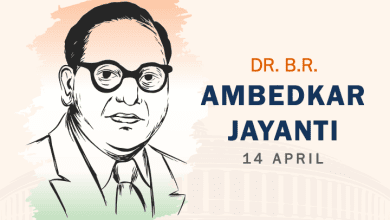The Caste Census Debate in India

The caste system in India has long been a deeply ingrained social structure, impacting millions of lives across the country and flows from the Manu Smriti on the Varna system. At the heart of contemporary debates on social justice and equality is the question of whether India should conduct a comprehensive caste census. This issue has sparked considerable controversy and discussion, raising questions about social justice, political representation, and policy-making.
The last comprehensive caste census was conducted in 1931 under British rule. Since then, the Indian government has not carried out a detailed census of caste groups, leading to a significant gap in understanding the socio-economic conditions of different caste communities.
During the Census Superintendents in February 1950, Sardar Vallabhbhai Patel said:
“Formerly there used to be elaborate caste tables which were required in India partly to satisfy the theory that it was a caste-ridden country and partly to meet the needs of administrative measures dependent on caste divisions. In the forthcoming census this will no longer be a prominent feature and we can devote our energies and attention to the collection and formulation of basic economic data relating to the means of livelihood of the people and other economic activities of the individual and the State.”
Only in 2011, the Census process collected data on Scheduled Castes (SCs) and Scheduled Tribes (STs), but it did not provide detailed information on Other Backward Classes (OBCs) and other caste categories.
The INDI Alliance leader Rahul Gandhi has repeatedly raised this issue on many forums and vociferously propagated the idea of conducting a caste census. On the other hand, Prime Minister Narendra Modi and his government have approached the issue with caution. Modi has expressed concerns about the potential for a caste census to exacerbate social divisions and tensions. His administration has underscored the administrative and financial challenges involved in conducting such a comprehensive survey. Modi has also voiced apprehension about the possibility of data misuse, which could undermine the very goals of social cohesion and development. While the government acknowledges the importance of addressing caste-based inequalities, it remains wary of the potential complications that a nationwide caste census might entail.
Let me bring out the pros and cons of this argument:
Arguments for a Caste Census
1. Policy Making and Resource Allocation and addressing inequality: Proponents of a caste census argue that it is essential for effective policy-making and resource allocation. Without accurate data, it is challenging to assess the needs of different caste groups and design targeted welfare programs. A detailed caste census would enable the government to allocate resources more equitably and ensure that affirmative action policies are effectively implemented.
2. Empowering Marginalized Groups: For many marginalized groups, particularly those within the OBC category, the lack of detailed data means their needs and challenges are often overlooked. A caste census could give these groups a stronger voice in policy discussions and ensure that their specific issues are addressed.
3. Strengthening Democracy: Accurate caste data could enhance democratic governance by ensuring that political representation reflects the diverse composition of society. It would help in crafting policies that are more inclusive and representative of all sections of the population.
Arguments Against a Caste Census
1. Potential for Social Tension: Critics argue that a caste census could exacerbate social tensions by highlighting and potentially reinforcing caste divisions. There is a concern that it might lead to increased polarization and conflict among different caste groups, undermining social harmony.
2. Risk of Misuse of Data: There is apprehension that the data collected from a caste census could be misused for political gain or to justify discriminatory practices. The potential for data manipulation or misinterpretation poses a significant risk, leading to concerns about how the information might be employed.
3. Emphasis on Caste Identity: Some argue that focusing on caste identity might undermine efforts to promote a more unified and egalitarian society. They believe that emphasizing caste distinctions could detract from efforts to address broader issues of poverty and inequality that affect people across caste lines.
Conclusion
As India navigates the complexities of this debate, it is crucial to balance the need for accurate data with the imperative to maintain social harmony and effective governance. The perspectives of both the ruling and opposition reflect the broader concerns at play, highlighting the need for a thoughtful and nuanced approach to the issue. Ultimately, the challenge will be to find a path forward that addresses the needs of all communities while fostering a more inclusive and equitable society.







